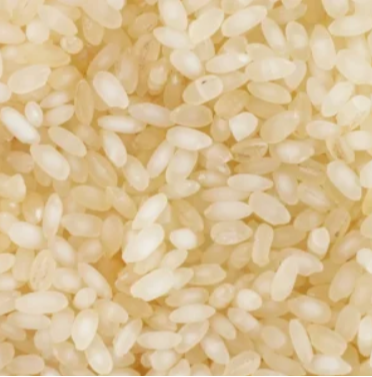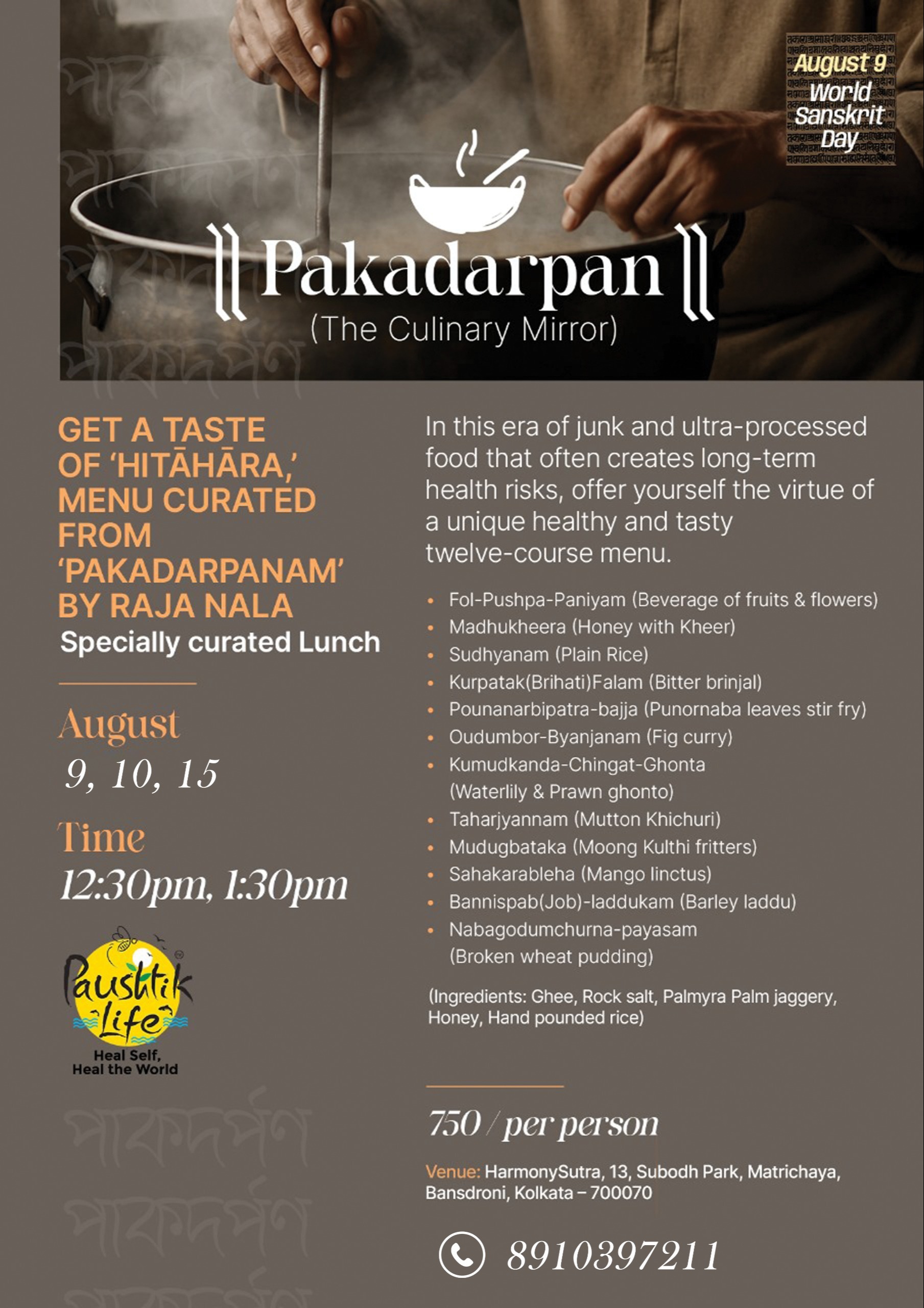Ayurveda Aahara and Paushtik Life – A Food Revival Movement
The Big News: FSSAI and Ministry of Ayush Launch Ayurveda Aahara Catalogue
On August 2, 2025, a major milestone in India's food and wellness ecosystem was achieved when the Food Safety and Standards Authority of India (FSSAI), in collaboration with the Ministry of Ayush, released the first-ever Ayurveda Aahara Catalogue. This move came under the framework of the Food Safety and Standards (Ayurveda Aahara) Regulations, 2022, which for the first time provides legal validation and guidelines for Ayurveda-based food preparations.
The catalogue lists over 50 verified food formulations, each backed by detailed references from classical Sanskrit and Ayurvedic texts such as the Charaka Samhita, Sushruta Samhita, and Kashyap Samhita, among others included in Schedule A. These are not just recipes—they are expressions of thousands of years of medicinal and dietary knowledge passed down through oral traditions and scriptures. Now, with official classification, these age-old preparations are granted scientific approval, regulatory legitimacy, and public trust.
In the words of Union Ayush Minister Shri Prataprao Jadhav, this development is "a monumental leap toward preventive healthcare and sustainable living." Supporting this, Ayush Secretary Rajesh Kotecha added that the catalogue "bridges the ancient with the modern, combining timeless nutritional wisdom with today's science of wellness." This integration is expected to inspire both food innovators and health-conscious consumers to turn to Ayurveda not just as treatment, but as daily nourishment.
The Initiative: What Makes This Important
India's food identity is not just about taste or tradition—it is about functional nourishment rooted in natural rhythms, seasons, and individual constitutions (prakriti). Ayurveda, India's ancient health science, recognizes ahara (food) as one of the three pillars of life, alongside nidra (sleep) and brahmacharya (conduct). But despite its profound insights, Ayurvedic dietary practice remained mostly in the shadows—revered, yet underutilized in policy and food industry frameworks.
The Ayurveda Aahara Catalogue changes that. It:
Bridges a significant regulatory vacuum, giving formal status to Ayurvedic recipes.
Safeguards authenticity, ensuring preparations are aligned with original texts and not diluted or misrepresented.
Empowers wellness-driven food businesses, Ayurvedic kitchens, and home chefs to innovate safely within an established legal framework.
Promotes India's biodiversity, since many Ayurveda-based recipes use regional, seasonal, and medicinal plants—reducing dependence on monoculture farming and packaged food chains.
Supports the vision of "Food as Medicine", reinforcing Ayurveda's preventive approach in tackling today's chronic health challenges like diabetes, obesity, and digestive disorders.
Ultimately, it positions India as a global leader in culturally rooted, sustainable nutrition science.
Paushtik Life's Contribution: 'Pakadarpan – The Culinary Mirror'
To complement this landmark policy initiative, Paushtik Life, a Kolkata-based women-led clean food movement, is presenting a tangible, sensory experience of Ayurvedic culinary tradition through its event, 'Pakadarpan – The Culinary Mirror.' Scheduled to coincide with World Sanskrit Day (August 9) and Shravani Purnima, the event offers a rare opportunity to eat from the pages of Sanskrit literature.
The curated menu is drawn entirely from 'Pakadarpanam,' an ancient Sanskrit culinary treatise authored by Raja Nala, the legendary king of Nishadha. Revered as a master chef of the Vedic era, Raja Nala's text offers not just recipes but guidelines for health-preserving, harmonious eating.
Event Details:
Dates: August 9, 10 and 15
Time: 12:30 PM and 1:30 PM slots
Venue: HarmonySutra, Subodh Park, Bansdroni, Kolkata
Contribution: ₹750 per person
The thoughtfully designed 12-course menu includes:
Fol-Pushpa-Paniyam (Beverage of fruits and flowers)
Madhukheera (Honey with Kheer)
Sudhyanam (Plain Rice)
Kurpatak(Brihati) Falam (Bitter brinjal)
Pounanarbipatra-bajja (Punornaba leaves stir fry)
Oudumbor-Byanjanam (Fig curry)
Kumudkanda-Chingat-Ghonta (Waterlily and Prawn ghonto)
Taharjyannam (Mutton Khichuri)
Mudugbataka (Moong Kulthi fritters)
Sahakarableha (Mango linctus)
Bannispab(Job)-laddukam (Barley laddu)
Nabagodumchurna-payasam (Broken wheat pudding)
Each dish is prepared using Ayurveda-approved staples like ghee, rock salt, palm jaggery, honey, and hand-pounded rice, reflecting a perfect harmony between nourishment, digestion, and spiritual wellness.
The experience is further enriched through storytelling, Sanskrit verses, and insights into Vedic food philosophy, transforming the lunch into a journey through India's culinary heritage and healing systems.
A Shared Vision
What makes Paushtik Life's event so timely and relevant is its natural alignment with the spirit of the Ayurveda Aahara Catalogue. Both efforts—one at a national regulatory level and the other at a community experience level—converge around a shared vision:
To reclaim traditional Indian food knowledge from obscurity
To educate people about conscious consumption
To revive Sanskritic heritage through food practices
To offer alternatives to industrial food systems that often harm both health and environment
While the catalogue provides the legal and scientific endorsement, Paushtik Life brings it to life—visibly, tangibly, and deliciously. It acts as a model implementation of what Ayurveda Aahara looks, smells, and tastes like in practice.
This synergy between policy and grassroots action is what will allow the Ayurveda Aahara initiative to flourish beyond paper and become part of everyday Indian life.
Sanskrit, Ayurveda, and the Future of Food
As we observe World Sanskrit Day, it is vital to remember that Sanskrit is not merely a language—it is a living archive of India's ancient scientific thought, especially in healthcare, ecology, and food systems.
The Ayurveda Aahara Catalogue revives Sanskrit's utility in modern governance. Paushtik Life's Pakadarpan lunch brings Sanskritic culinary wisdom to our plates. Together, they initiate a new era of food consciousness—one where taste, wellness, and heritage meet.
This isn't about nostalgia.
It's about revival.
Not a trend, but a transition back to balance.
A return to slow, sustainable, and sattvic living in a fast-paced world.
Experience the Revival
Celebrate this World Sanskrit Day with Pakadarpan – The Culinary Mirror
www.paushtiklife.com
Ph: 8910397211
Venue: HarmonySutra, Subodh Park, Bansdroni, Kolkata – 700070






